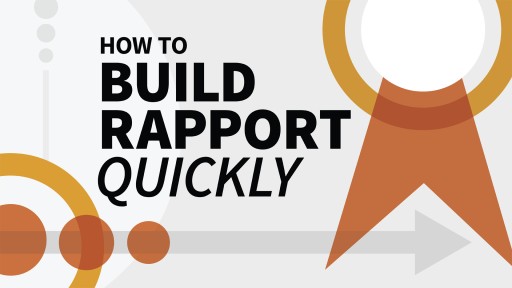Rise x LinkedIn Learning
LinkedIn learning offers over 16,00 skills-development courses, and you can access them all for free as part of your Man Met studentship (usual cost £29.99/month!)
And thanks to our exclusive partnership, you'll automatically earn Rise points for completing them.
Here's how to get started:
- Go to linkedin.com/learning-login
- Enter mmu.ac.uk - this step is important!
- Click Continue to The Manchester Metropolitan University
- Enter your username in the following format: MMUID@stu.mmu.ac.uk, eg. 12345678@stu.mmu.ac.uk
- Enter your usual university password
Note: Rise points will be automatically awarded at 7am each morning, based courses that you have fully completed in the previous 24 hours
Is self-employment for you?
This LinkedIn block has been curated to introduce you to some of the key concepts involved in working for yourself, whether it be a side hustle, freelancing, or establishing a business.
From planning your business idea, to marketing your product, to building relationships with key stakeholders, learn more about some of the fundamental tools you will need to get started.
Equally, if you want to undertake some more comprehensive courses, check out our Self Study Packs on some of these concepts:
unfold_moreunfold_lessFreelance
Successful freelancing requires more than great work. Join Jay Clouse, creator of Freelancing School, as he teaches the essential skills required for building a successful freelancing business. Jay walks through the foundations of setting up an independent company including setting prices, creating proposals, what to include in contracts, and invoicing. He covers best practices for marketing as a freelancer, closing sales, and tips for dealing with clients. Jay also discusses what it takes to be a full-time freelancer.
The prospect of starting your own business from scratch can feel at once exhilarating and overwhelming. Before you launch a new business, it's critical that you validate and test your ideas to determine if they represent legitimate market needs. In this course, Dave Crenshaw helps you determine first which businesses are best suited to you as an entrepreneur, and then how to brainstorm ideas and identify which idea is a real opportunity. Lastly, he helps you create and execute a plan to test for validity before you start a business.
Join market research expert Sarah Weise as she goes over some of the best marketing research techniques and how to leverage them for nearly any challenge at hand. Sarah lays the groundwork for the course by examining the role marketing research plays in making strategic decisions about your brand or product. She shows how to get to know your customers though quantitative and qualitative techniques ranging from surveys and interviews to mobile diary studies and ethnography. Learn how to clarify your research goals, how to sell your company on research, how to find the best participants, and how to present your data in succinct, meaningful formats like customer personas and journey maps. You'll walk away with the skills you need to plan your next market research study with confidence.
When you launch a new product or enter a new market, it's crucial to have both a roadmap that sets you up for success and the means to track the growth of your program. In this course, discover how to build and develop a go-to-market (GTM) plan for your next product or service. Join renowned marketing author Deirdre Breakenridge as she takes you through the steps needed to bring your product or service to the world. Deirdre helps you discern whether you need a GTM plan, and shows how to build a product strategy that's tailored to the market and customer base you aim to reach. She shares methods for pricing and promotion, and explains how to drive better channel performance, evaluate KPIs and metrics, and more.
By compiling a competitive analysis, you gain insight into your competitors to identify your own advantage and edge in the marketplace. In this course, join marketing expert Deirdre Breakenridge as she explains how to conduct a competitive analysis for your business. In addition to explaining the value of a competitive analysis, Deirdre shares best practices for conducting research on your competition, and discerning your own strengths and weaknesses. She also discusses how to analyze your competitor's strategies to inform your future goals. Finally, Deirdre shows you how to evaluate the outcome of your analysis to drive growth and competitive intelligence.
Pricing can determine whether your business succeeds or fails. This course reveals a proven methodology for developing a pricing strategy and increasing customer perceptions of value so you can justify higher prices and boost margins. Learn how investors evaluate pricing strategies, the advantages and drawbacks of different pricing models, how to calculate margins, how to gauge price sensitivity, and how to build a pricing profile specific to your offering based on eight key variables. Tips and examples are included for both product- and service-based businesses, as well as businesses that contend with seasonal pricing variations. The session offers guidance on bundling, discounting, and other pricing techniques, which you can apply in the workshop session. This course was created by EntrepreneurNOW. We are please to offer this training in our library.
Finance exists in the real world. It impacts everyone: individuals, families, companies, and governments. While it may sound complicated, at its core finance is about deciding what to buy, getting the money you need to buy it, and efficiently managing the resources you already own. In this course, Brigham Young University business professors Jim and Kay Stice provide a comprehensive overview of finance, touching on everything from reading a balance sheet to understanding derivatives and securities. They tackle questions such as "What is the difference between short-term financial management and long-term financing?" and "What is the difference between a traditional bank, an investment bank, and an investment fund?" Along the way, you can get an inside look at financial reports from companies such as Walmart and Toys "R" Us, the IPOs of Microsoft and Facebook, and even the data that go into personal financial decisions, such as deciding whether to buy a car.
Manage your small business successfully with these finance essentials from accounting professors Jim and Kay Stice. They explain the five reasons so many small businesses fail and outline strategies—such as tracking your accounting, managing your operating cycle, and forecasting cash flow—that will help you manage your small business better. They also provide valuable perspective on pricing strategies and the dangers of fast growth.
Social media dramatically altered marketing by allowing businesses to directly engage with customers and vice versa. Brands that stand the test of time will use these platforms to create fresh connections and build long-term loyalty. In this course, you can learn the basics of social media marketing. Instructor Brian Honigman—a top marketing consultant—explains why making an investment in social media can benefit your business. He shows how to define your audience and craft a social media strategy focused on your organization's goals. He also teaches you how to communicate effectively on leading social networks such as Facebook, Instagram, and Snapchat; drive results with paid ads; and measure your success.
View Mike's LinkedIn Newsletter Looking to build a business or expand one you're already running? You'll need to build a business plan before you do. Experienced entrepreneur and consultant Mike Figliuolo walks through the process of defining your business, researching the market, and determining your product. Once you've figured out what your product or service will be, Mike provides guidance for thinking through your sales strategy, day-to-day operations, staffing, and financial forecasting. A sample business plan is provided, so you can follow along with the development of a real-world company.
View Gemma's LinkedIn Newsletter Mindset is a choice. People with a growth mindset—who choose to believe that talent and ability can grow—experience better performance, focus, and success. You have the power to change your mindset. The key is learning how to make the shift. This course shows you how. Executive coach Gemma Leigh Roberts introduces real-life examples of individuals and organizations who have successfully adopted a growth mindset, as well as the latest research from the fields of performance psychology. She boils down the lessons into practical advice you can apply to reach your own potential. Plus, get tips to stay motivated and help you navigate change successfully.
Many smart and talented people find themselves hitting professional plateaus at various stages in their careers. Rather than seeing this as a problem or personal shortcoming, you can embrace these moments for what they are: a signal that you may be outgrowing your current projects and are ready for something new. In this course, business strategist Jenny Blake outlines her four-stage process for helping "high-net-growth" individuals map a pivot plan for growth within their role and look for small experiments outside of it, ultimately to make an even greater impact. Discover how to build on your existing strengths, identify what energizes you most, scan for related people, skills, and projects, and make small changes that will take you closer to your one-year vision of success, starting from right where you already are.
View Chris's LinkedIn Newsletter Habits have been identified as the key to success over the long term. Take a short break for learning and learn a new success habit. Join experienced and insightful instructor Chris Croft as he delivers valuable and practical success tips. He covers topics such as the relationship between success, money, and happiness; emotional intelligence; goal setting; organization; purpose; and creativity.
unfold_moreunfold_lessStart Up
Venture design is a lean approach to human-centered design, optimized for the creation of new businesses—building them rapidly and efficiently from zero to launch. In this course, discover the many advantages that this design approach brings to entrepreneurial efforts, both within startups and major multinationals. Join Ethan Imboden, VP of creative at frog, a global design and strategy firm, as he lays out the key principles of venture design. See these principles in action with real-world case studies from frog's work with both early-stage companies and Fortune 500 leaders. By the end of this course, you'll have a simple framework for understanding where to focus innovation efforts, and how to structure these efforts for the highest likelihood of success.
No company can survive without innovation. Large or small, new or old, for profit or nonprofit, all organizations need to keep morphing to succeed. But how do you nurture nonstop innovation? Strategy experts Anil Gupta and Haiyan Wang outline the core logic of innovation and show how leaders at many companies and nonprofits—including Apple, Amazon, and Google—nurture innovation without losing control. They outline the multiple ways—including design thinking, lean startup, and collaborative innovation—in which any organization can innovate. They also show how companies can change the rules of the game by dramatically redefining the target customer, rethinking the value proposition for the customer, and/or reengineering the value chain. And, they discuss the why and how of digital transformation and social innovation. Use these strategies to uncover new pathways to innovation at your organization.
While industry titans such as Google and Disney can seem like singular forces in the marketplace, their success is due in part to their ability to collaborate with other companies and foster key partnerships. Whether you're a leader at a multinational corporation or a small organization, strategic partnerships can help your business enter new markets and develop more innovative products. In this course, partnership strategy expert Ben Gomes-Casseres spells out how to succeed with strategic partnerships, sharing practical tips and tools that can help both beginners and experienced managers create value and manage collaboration. Ben covers how to assess the capabilities of potential partners to find the best strategic fit. He also steps through how to set partnership terms, resolve conflicts, and more.
Your business analysis plan is a fundamental step in your BA journey. Business analysis planning and monitoring is one of the six major knowledge areas of business analysis. In this course, instructor Christina Charenkova helps you lay the groundwork for successful business analysis activities and ensures your project can meet its goals. Find out how to identify and complete the right activities before you even get started gathering insights. Get tips from Christina on building an outline, engaging and communicating with stakeholders, and leveraging your analytic skills to promote better business outcomes. Upon completing this course you'll be better prepared to effectively manage the business analysis activities that will occur within the project, driving the right outcomes so that your project can meet—and exceed—its goals and objectives.
It may seem counterintuitive to think that costs actually add value to a project. However, accurately projecting your costs and the resources they’re actually costing can determine the overall success of your project or investment. In this course, CPA Ajay Pangarkar shows you how to develop a cost estimate for all types of organizations. When major decisions need to be made, stakeholders want as much information as possible, and Ajay covers topics like looking at the various data types associated with cost estimating, how to report cost estimates, and tips for keeping the cost estimate accurate by validating data. After completing this course, you’ll be able use cost estimates to deliver more value in your projects, and do so within the cost limitations imposed by company leadership.
Revenue forecasting is a form of predicting the future—which makes it intimidating and may be why so many entrepreneurs hazard wild guesses to get it over with as fast as they can. But tying income projections directly to marketing and sales activities and using industry research to justify growth predictions is essential if you want to transform your revenue model into a useful tool for tracking performance and staying on top of your cash flow. In this course, you can look at what drivers create revenue; which revenue models work best for product, service, and subscription or membership businesses; and how to predict how fast your business will scale. Detailed worksheets accompanying this course help you develop your own models that are succinct, understandable, accurate, and actionable. This course was created by EntrepreneurNOW. We are please to offer this training in our library.
Revenue recognition determines when a sale should be recorded: This month or next month? This year or next year? This seems like an easy question until you consider situations in which a company sells a package of goods and services for one joint price, aka multi-element transactions. But without recognizing revenue, a company can't hope to report any profit. Accordingly, company management is typically under great pressure to recognize revenue as soon as possible. Want to understand these concepts better? Join professors Jim and Kay Stice as they introduce the theory, practice, and implications of revenue recognition. Together they demonstrate how this seemingly innocent accounting topic can turn a reported profit into a reported loss, sometimes with multibillion dollar implications for company values.
Your value proposition—which clearly defines what makes your offering unique, and motivates prospects to buy and remain loyal—is one of the most crucial components of your marketing. In this course, join Chris Goward as he walks through how to craft a great value proposition. Chris first discusses the importance of the value proposition, and helps you determine how your prospects perceive the features and benefits of your product or service. He also showcases the components of a great value proposition by defining its tangible features, and showing examples of how to use intangible benefit tactics to drive your growth marketing. Plus, he goes into the importance of understanding price, cost, and the power of free. By the end of this course, you'll have a framework to create your own exceptional value propositions.

With the rise of technology, people are having fewer face-to-face conversations. As a result, there are fewer opportunities to practice and build our social skills. But with numerous studies showing that having fewer social relationships negatively affects our health, relationship building isn't a skill we can afford to lose. In this course, adapted from the podcast How to Be Awesome at Your Job, best-selling author and customer service consultant John DiJulius shares expert tips for quickly building lasting emotional ties. John outlines the five essential characteristics of relationship building, emphasizing the role that authenticity, curiosity, and empathy play in forging genuine connections. He shares topics you can turn to quickly build rapport and find common ground. Plus, he goes over how to take cues from investigative reporters to ask questions that spark a lively discussion. This course was created by Pete Mockaitis of How to Be Awesome at Your Job. We are pleased to offer this training in our library.
Learn how to group your customers into market segments to better understand what they really want. In this course, instructor Doug Ladd explains the basics of customer segmentation and covers a variety of segmentation techniques. He describes segmentation based on geography, demographics, culture, behavior, psychographics, and the benefits your customers seek. He also shows where to look for this information, how to analyze it, and how to use segmentation data and analysis to develop model customer personas that can help in product development, service level planning, and more.
 //REWORK THIS
//REWORK THIS





























